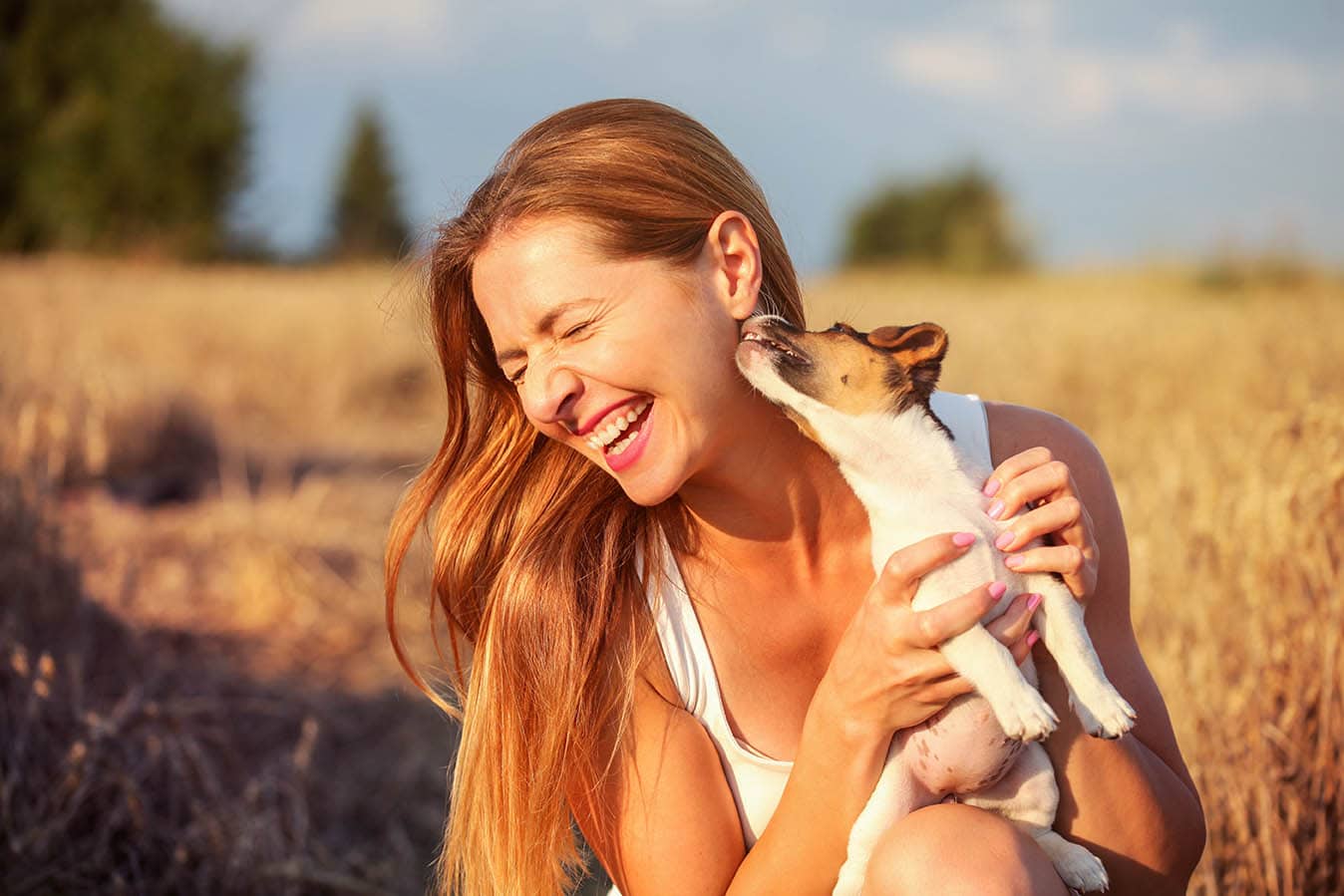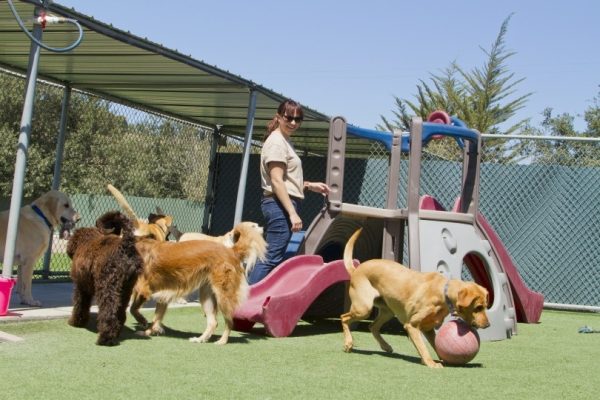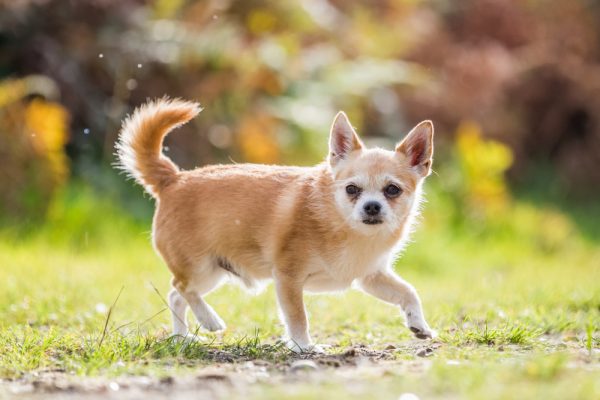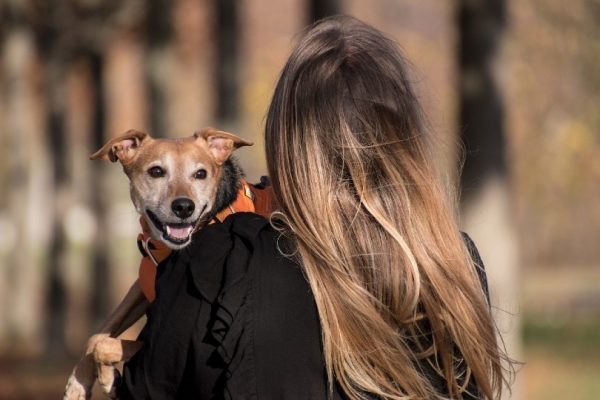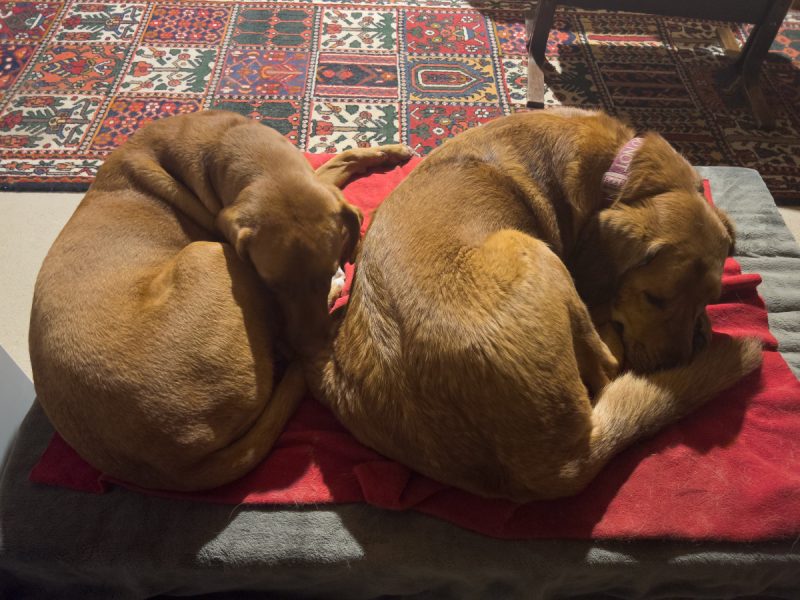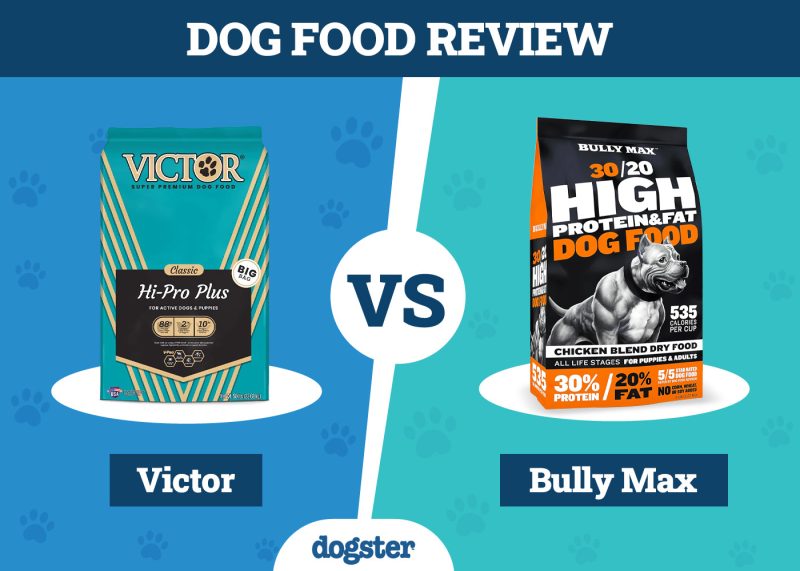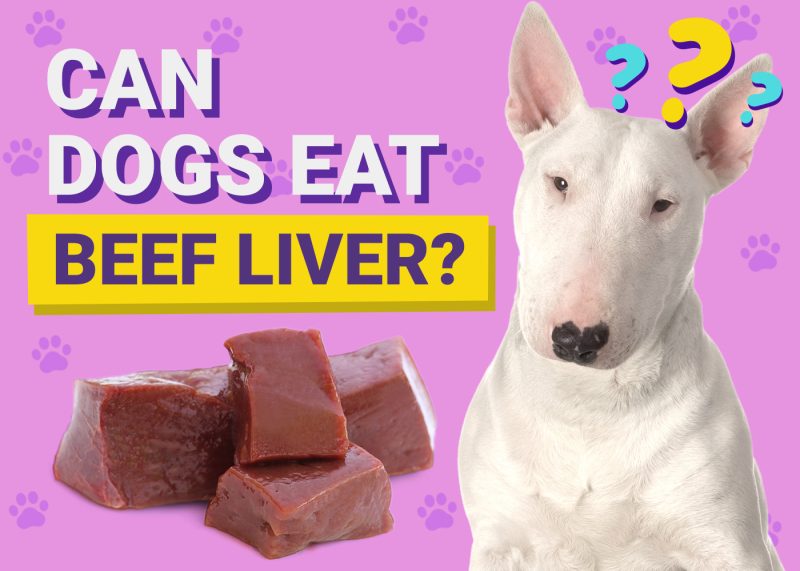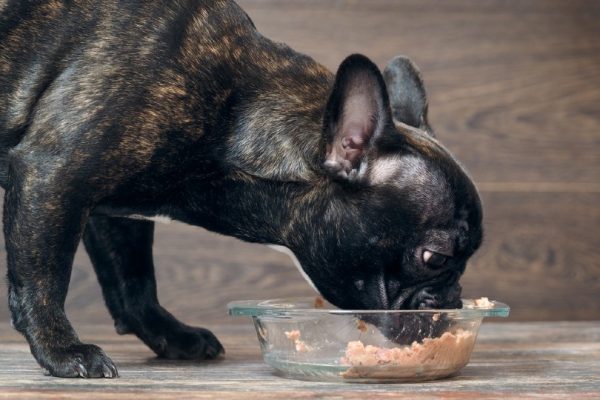In this article
View 2 More +Licking is an instinctive canine behavior that dogs use to communicate with people and each other. If you’re wondering why your dog licks your face, you’ve come to the right spot. When your dog licks your face, it could be to send a message, keep you clean, gather information, or just for fun.
If you are wondering why your dog licks your face aggressively or if the behavior generally bothers you, there are ways to stop it. Find out why dogs lick your face and how you can curb the behavior.

The 6 Reasons Why Dogs Lick Your Face
1. Affection
Dogs show affection by licking your face. When they’re puppies, they learn to lick from their mother and often lick their littermates. In this way, licking can strengthen family bonds. When your dog licks your face, it may be simply showing you love and attempting to bond.
2. Respect
Dogs follow a social order within a pack, and you’re the pack leader. Dogs may use face-licking to signal respect and submission to the leader, which may be the case when it licks your face. Your dog is just showing you that it knows you’re the boss.
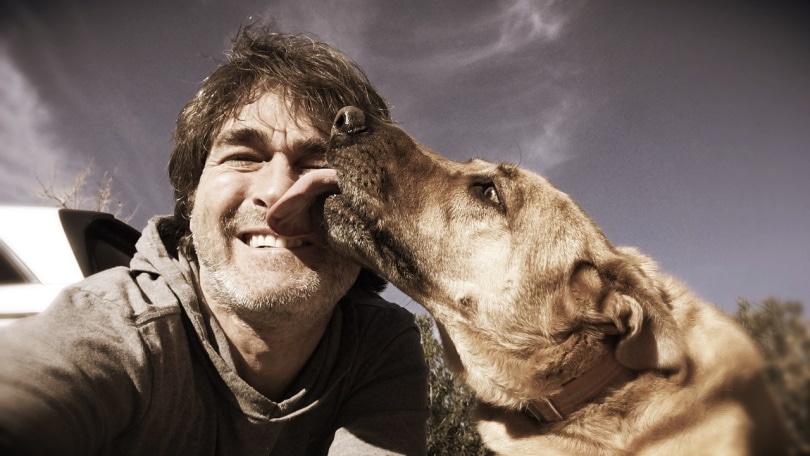
3. Hunger
Sometimes, dogs will lick to tell you they’re hungry. Wolves and wild-pack puppies transition from drinking milk to consuming partially digested food. They lick their mother’s face to stimulate regurgitation. If it’s around feeding time, your dog may just be telling you it’s time for dinner.
4. Gather Information
Dogs explore the world with their noses and mouths. Human toddlers express a similar behavior when they hold and taste random things that they find in their environment. It is a way of gathering information and learning.
5. Grooming
Dogs lick themselves to stay clean, and mothers will lick their pups to clean them up after they’re born. Your dog may be displaying this behavior by licking your face to clean you up.
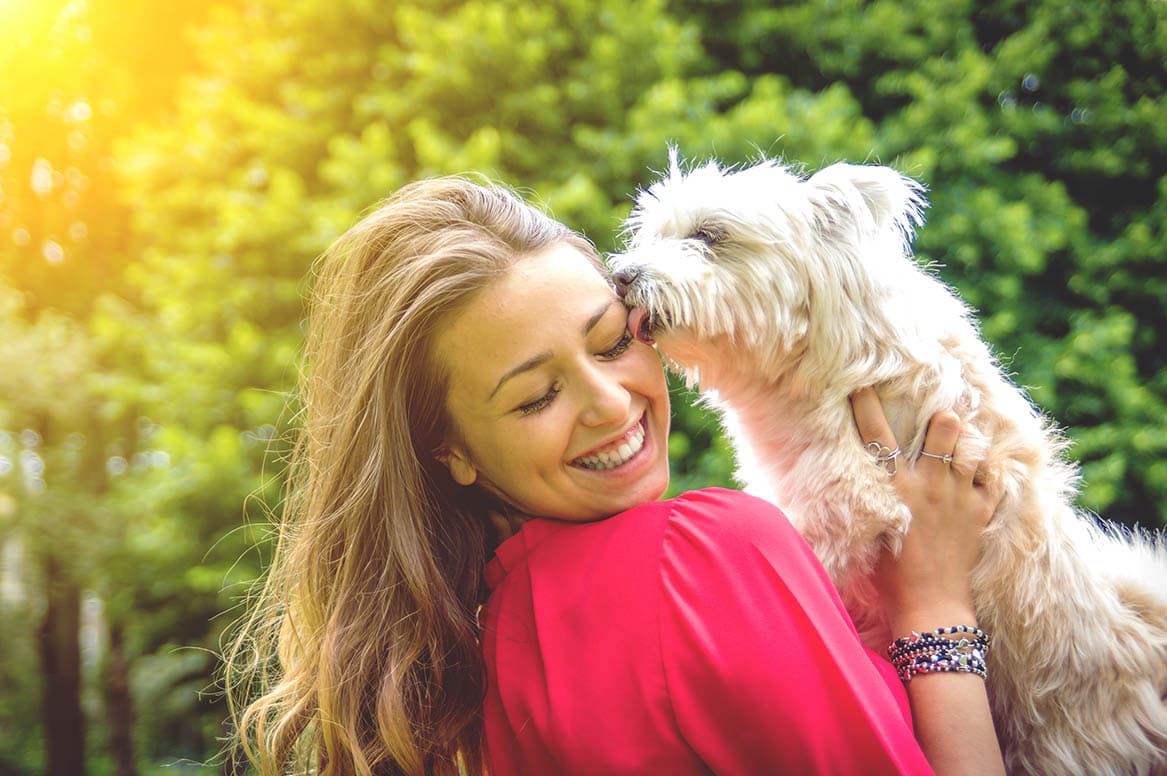
6. Enjoyment
Sometimes, your dog just enjoys licking and wants to lick you for comfort and security. Licking releases pleasant endorphins and is a self-rewarding behavior, so your dog may just lick you to feel good.

Is It Dangerous for Dogs to Lick Your Face?
In healthy children and adults, a healthy dog’s saliva isn’t a huge risk. If your dog licks an open wound, however, it can keep the wound open and allow bacteria to grow, possibly leading to an infection.
According to the Centers for Disease Control, capnocytophaga microbes occur naturally in the saliva of humans, dogs, and cats. These bacteria can cause an infection in an immunocompromised person. Therefore, it is recommended to minimize contact with dog or cat saliva as much as possible.
If you’re worried about infection, don’t let your dog lick open wounds or near your mouth, eyes, or nose. After your dog licks you, wash your face or use antibacterial gel or spray to clean the area.
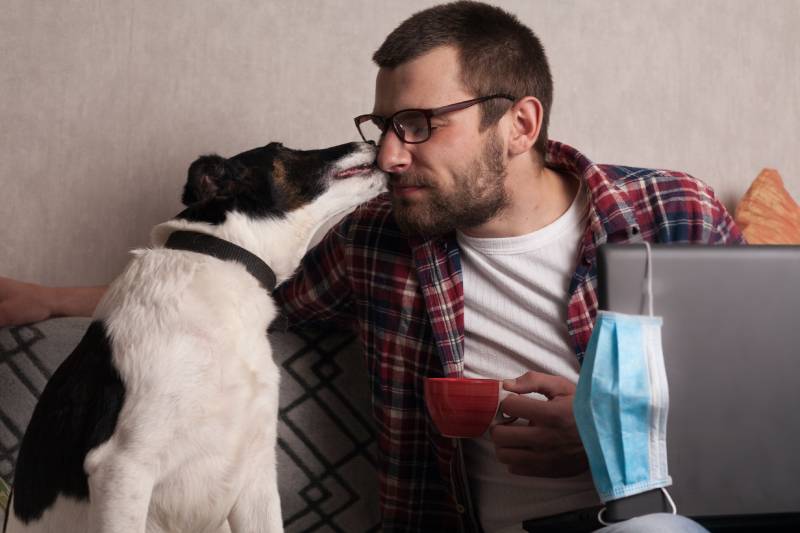
How Can I Stop Face Licking?
While it may not be harmful, a dog licking your face is not everyone’s favorite behavior. If you want your dog to stop, there are some behavioral modifications you can implement.
Most importantly, realize that you may be subconsciously reinforcing the licking behavior. When your dog licks your face, you give either positive attention by laughing or petting or negative attention by telling it to stop. When this occurs, you’re encouraging the behavior.
The best way to modify this behavior is by redirecting the licking to a more appropriate area, like your hand or wrist. If you don’t like the licking at all, you can redirect the behavior to a toy. It is very important that you offer the toy before the dog has a chance to lick you. Ask a vet for some pointers on how to modify your dog’s behavior.
If you need to speak with a vet but can't get to one, head over to PangoVet. It's our online service where you can talk to a vet online and get the advice you need for your pet — all at an affordable price!

Conclusion
So, what does it mean when a dog licks your face? There are many reasons, including affection, grooming, and just plain enjoyment. While many dog owners enjoy having their pup lick their face, some dogs can be overly aggressive. In addition, people with compromised immune systems may be at increased risk of infection from the germs in the dog’s saliva. If you want to stop the behavior, teach your dog a different way to express affection and redirect its attempts at licking. Over time, you can correct excessive licking.
You may also want to read:
- Do Dogs Like Being Picked Up or Held? What You Need to Know!
- Why Do Dogs Lick Blood? (6 Possible Reasons)
Featured Image Credit: StockSnap, Pixabay

